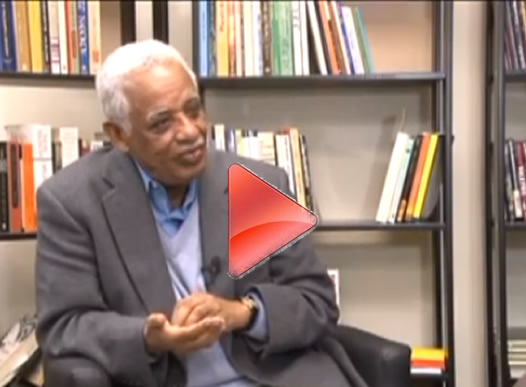TPLF, Eyes Coffee-Export Share
Guna, Owned by Ethiopian Ruling Party, Eyes Coffee-Export Share
By Jason McLure Oct. 27 (Bloomberg) — Guna Trading House Plc, owned by Ethiopia’s ruling party, said it plans to become one of the nation’s biggest coffee exporters, raising concern among industry observers that private industry may get crowded out.
The company began shipping the beans in July and aims to export at least 12,000 metric tons of coffee in the year through June, Mulualem Berhane, general manager of Guna, said in an interview on Oct. 22 in the capital, Addis Ababa.
“We are intending to export to Europe, the U.S. and China,” he said, adding that Guna is among at least four other companies owned by the state or Prime Minister Meles Zenawi’s ruling party intend to expand in the industry.
Ethiopia, where arabica coffee originated, is Africa’s biggest producer of the crop, which accounts for 26 percent of the nation’s export revenue. The Horn of Africa country shipped 133,993 tons of beans worth $375.8 million last year, according to Trade Ministry data.
Only three exporters shipped more than 10,000 tons in the fiscal year ending July 7, 2008, according to data from the Ethiopian Coffee Exporters Association. Those three, who together accounted for more than a third of the nation’s shipments, were closed in March after the government accused them and other exporters of illegally stockpiling coffee.
In April, the state-run Ethiopian Grain Trade Enterprise began operating a coffee-export business. Earlier this month, the company said it would purchase about 10,000 tons of beans in the current year, according to Walta Information Center, a ruling party-owned news service.
‘Unfair Advantages’
Bulcha Demeksa, a lawmaker from the opposition Oromo Federalist Democratic Movement, said parastatals operating in the coffee industry benefit from unfair advantages and will take market share away from private operators.
“They are literally government,” Bulcha said in a phone interview on Oct. 22 from Addis Ababa. “They have so many advantages. The small exporters will be driven out of business.”
Hussein Aregaw, president of the Ethiopian Coffee Exporters Association, declined to comment.
Guna is owned by the Endowment Fund for the Rehabilitation of Tigray, or Effort, a group of at least a dozen companies founded by former rebels from Meles’ ethnic Tigray People’s Liberation Front in the 1980s and 1990s. The TPLF ousted Ethiopia’s former Communist Derg government in 1991, and has since run the country in an alliance with other pro-Meles parties known as the Ethiopian People’s Revolutionary Democratic Front.
‘Favorable Regulation’
Effort’s chief executive officer is Abadi Zemu, a senior official in the TPLF. Its deputy CEO is Azeb Mesfin, who is the wife of the prime minister and a lawmaker from Ethiopia’s northern Tigray region. Calls to Abadi’s office phone weren’t answered and calls to Azeb’s office line didn’t connect when Bloomberg News called them today seeking comment.
Eyesus Work Zafu, president of the Ethiopian Chamber of Commerce and Sectoral Association, the nation’s largest business lobby group, said government companies have better access to credit and enjoy favorable regulation and opportunities.
“Government has been a preponderant economic actor in our country,” he said in a phone interview. “When private sector businesses are engaged in similar activities as public enterprises such as in banking and insurance, preference is given to government companies. The playing field is not level.”
A 2009 report on investment in Ethiopia by the World Bank said that “there is an impression that endowment and state-owned enterprises benefit from privileged access to policymakers and resources and are consequently able to compete on unfair terms.”
Business Ethics
Mulualem said the presence of government and parastatal companies in the market will improve the business ethics of Ethiopia’s coffee traders.
“If we and Ethiopian Grain Trade Enterprise enter into the market everything will be legal, because we follow all the rules and regulations of the country,” he said. Guna and other parastatals don’t enjoy favored treatment, and criticism of them is politically motivated, he added.
The government also denied that the entry of parastatals into the industry was part of an effort to increase control over the industry.
“There is no crowding out of private business by anybody,” said Bereket Simon, Ethiopia’s communications minister, in an Oct. 23 phone interview. “This is a country increasingly becoming ruled by competition, by efficiency and price. I think the First Lady will not be guided by rent-seeking practices.”
Berhane Hailu, general manager of the Ethiopian Grain Trade Enterprise, was unavailable for comment when Bloomberg News rang his office today seeking comment.
To contact the reporter on this story: Jason McLure in Addis Ababa via Johannesburg at pmrichardson@bloomberg.net.
Last Updated: October 27, 2009 09:22 EDT













